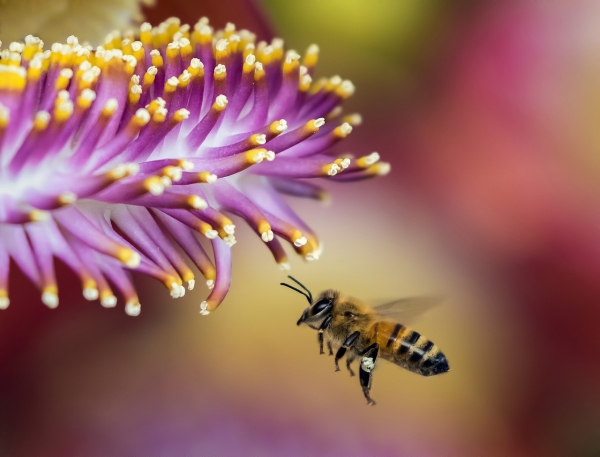It has long been known that exposure to pesticide sprays is harmful to honey bees. In a new study, researchers have uncovered the effect of such sprays on the sense of smell in bees, which could disrupt their social signals.
Honey bees live in dynamic communities and constantly communicate with each other using chemicals that serve as social cues. For example, nurse bees—that are responsible for taking care of larvae that ultimately become queens and worker bees—constantly monitor the larvae using in the dark using pheromones. The larvae emit brood pheromones to indicate that they need food. There are also alarm pheromones that workers produce to warn the other bees of danger. If these cues are dampened or not perceived properly, the colony may fail to thrive.
Since 2007, scientists have known that honey bees have been in trouble. One of the stressors that have raised concerns are insecticides, which affect honey bee health. Because these are usually used in combination with other chemicals, the resulting mixture can become unexpectedly toxic to bees.
Read more at Carl R. Woese Institute for Genomic Biology, University of Illinois at Urbana-Champaign
Photo Credit: Pexels via Pixabay


